Student Blog
Life Hacks
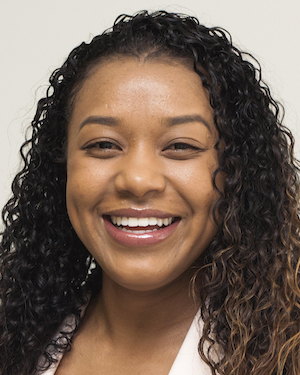
Lovely Day Spent on UPC ⟩
September 7, 2018, by Serena
Life Hacks Living in LA
USC has a few campuses. As an OT student I find myself at both the University Park Campus (UPC) and Health Science Campus (HSC).
University Park Campus, more commonly known as Main Campus, is most likely the campus you think of when you envision USC. It is where the undergraduate programs are located. Doheny Library, Tommy Trojan, and the main bookstore (which has 4 levels!!!) are all located on UPC.
HSC, Health Science Campus, is where most of the healthcare graduate programs are located, like the medical school, physical therapy department, and OCCUPATIONAL THERAPY department! It is also where Keck Medical Hospital and La County Hospital are located. As an OT student, you have all of your classes on HSC.
A few times a week, I take the free intershuttle tram or drive to study on UPC which takes about 20-30 minutes. I travel to UPC for MANY reasons but below I have listed three of my favorite places on UPC.
1. Kortschak Center for Learning and Creativity (KCLC)
Kortschak Center for Learning and Creativity (KCLC) is an academic support center for USC students. As graduate students, we can receive their services during walk in hours. KCLC holds individual academic guidance sessions, workshops, academic support groups, and quiet study spaces with yoga mats, ear plugs, and highlighters. They even have fidget toys that you can borrow when you are studying in the center! Academic coaches’ focus is on but is not limited to enhancing time management skills, goal-setting tips, and self care strategies to promote optimal academic success. Their website has many useful resources that you can access on their Tools and Resources page. The academic coaches are in the Postsecondary Administration and Student Affairs, Marriage and Family Therapy, Education in Educational Counseling, and of course Occupational Therapy program. I will be completing my Level I Fieldwork at KCLC this semester so I am looking forward to blogging and sharing my experience as an OT student at the center.
2. The Writing Center
The Writing Center is another great resource for USC students wishing to enhance their writing abilities. Their lovely writing consultants help you understand and problem solve using strategies that will allow you to be more self-efficient writers in the future. The Writing Center offers services in the form of both individual consultations and small-group workshops. As an OT student, you may find The Writing Center to be helpful with your in class papers, projects, and scholarships. In addition, if becoming a writing consultant is of interest to you while you are in the OT program, you can even apply to work part-time at the center and help other students excel!
3. USC Village
The USC Village opened in 2017 as a huge relief to many students who were missing their everyday shops like Trader Joe’s and Target. At the Village you can shop, dine, and exercise. You can even get your nails, hair, and eyebrows done because we all know the importance of self-care! 😊 For me, the relaxing and peaceful environment is the most attractive aspect of the newly built complex. Sitting under the umbrella tables next to the beautiful water fountain is one of my favorite places to study on UPC. It is also a nice area to meet other students pursuing other professional degrees.
Here I have highlighted just a few of my favorite places on UPC. As an OT student at USC, the number of resources are endless, which is one of the many reasons why I decided to complete my Master’s in Occupational Therapy at this wonderful institution. What a beautiful experience it is to be a part of a community that is always providing the best support and resources to their students. The USC community is always developing new ways to enhance their students’ ability to learn! If you have any questions, like always, please feel free to reach out to me!
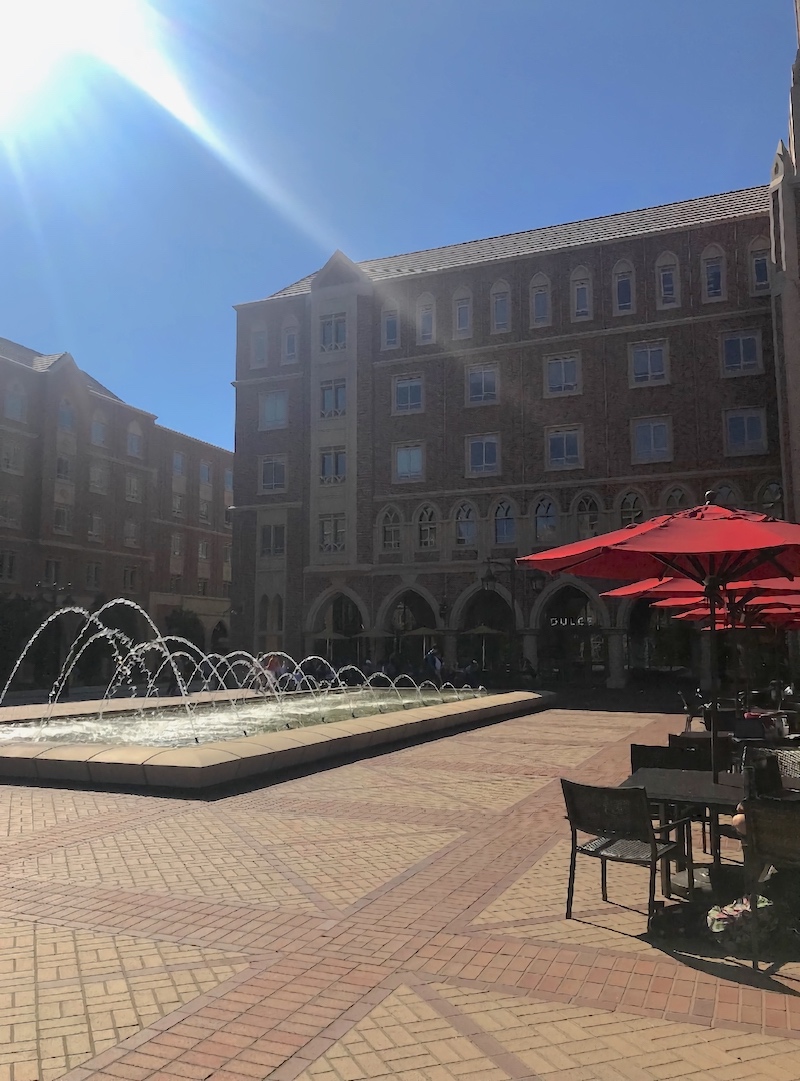
USC Village on University Park Campus (UPC)
⋯
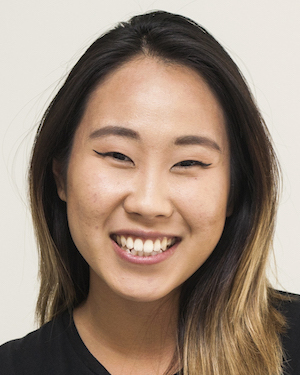
3 Reasons to Level 2 Out of State!! ⟩
September 6, 2018, by Joyce
Fieldwork Life Hacks
For current and prospective students alike, I would urge you to consider an opportunity to complete your level 2 fieldwork outside of sunny state California. Here’s why.
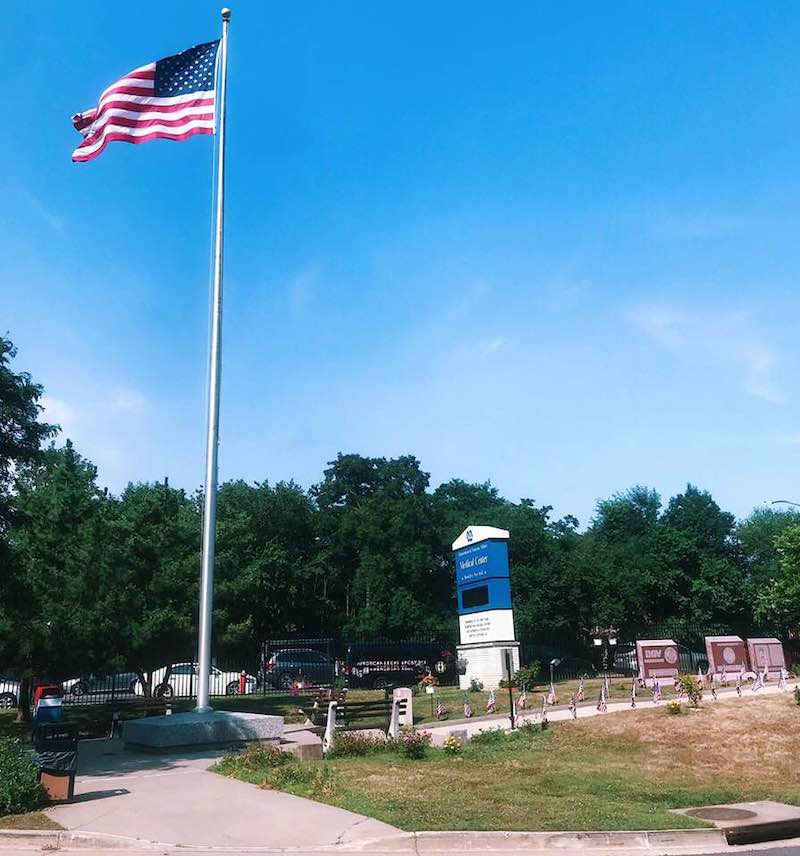
Experience a New City
This is the perfect time to travel and put yourself out there. I know it can be a scary thought (I’ve moved to two new cities already!). However, if the time isn’t now, then when? I truly believe that as students, we have the flexibility to travel without worrying about taking absence from work or using your paid time off’s. Go eat new foods, explore new restaurants, and meet great people!
Experience a New Culture
Hey, even if you’re still travelling domestically, culture varies by state and even by city. Growing up in NYC, we were always taught to grind and work hard. When I moved to Boston for my undergraduate career, the adjustment was difficult. The culture is slower paced and a lot more preppy, as if you stepped right into a J. Crew Magazine.The city is small and old yet rich with history. Now when I moved to Los Angeles, boy are the vibes different. People brunch at the weirdest times here, obsess over their dogs, and drink an unending amount of kale smoothies. I believe by working in settings outside of LA, especially if you never left LA, you get to experience various cultures and meet people from different walks of life. The more diverse your student experiences are, the more enhanced your clinical reasoning becomes and more refined your therapeutic use of self becomes.
Experience a Different OT
Having gone through two Level 1 Fieldworks and 1 Level 2, there is a difference between therapists who received their education on the west coast vs the east coast. Because my level 2 was in NYC, I had the opportunity to work with OTs and PTs who completed their degrees in New York. We bonded over deep conversations as we shared the major differences and similarities between programs. In this way, I got to understand their clinical reasoning and their experiences while at the same time sharing what I learned here at USC. Expanding your professional network within the rehabilitation field is another amazing perk of completing your fieldwork out of state!
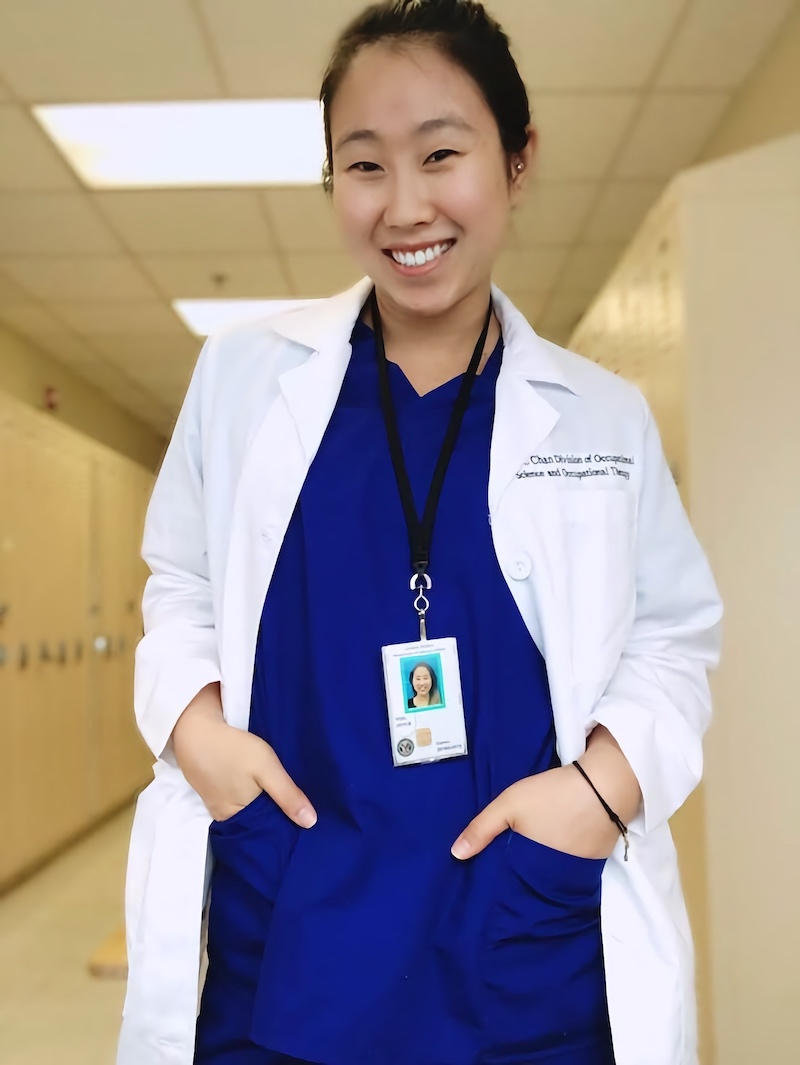
⋯
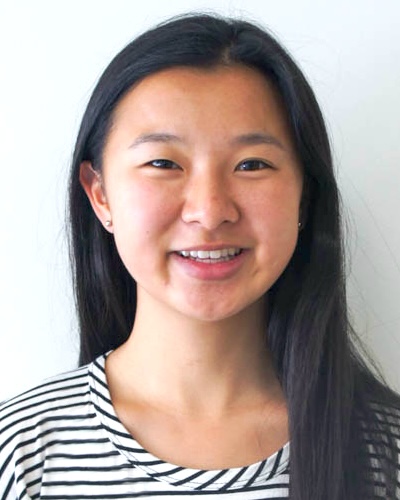
First Day of Classes ⟩
August 20, 2018, by Bethany
Life Hacks
This is it. The end of summer. The end of long sunny days, home-made lemonade, and sleeping in (except, of course, on weekends). The end of drive-in movies with old high school friends. The end of unscheduled days and reading stacks upon stacks of fiction novels. At least for now.
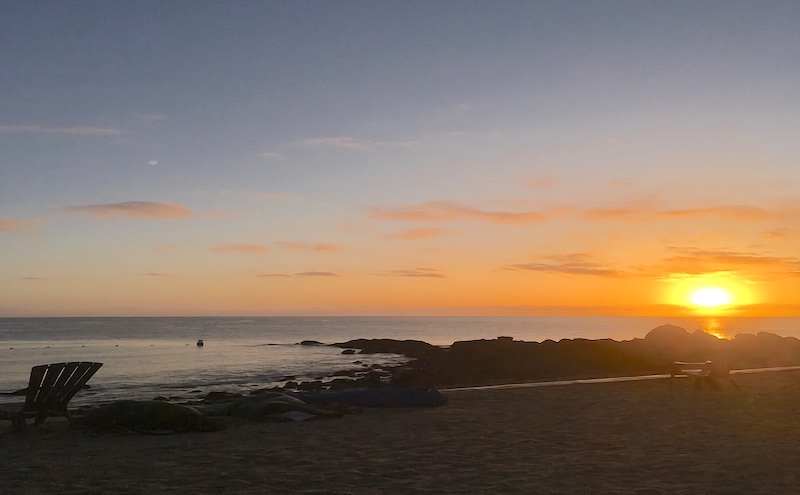
But it’s the start of something else. Junior year has begun, folks, and it’s time to get back to the grind. I’ve learned so much this summer about my favorite occupations, USC life in the summer, and different areas of occupational therapy. I’ve been able to meet so many different people from so many different backgrounds, all with a passion for helping people.
But I’m looking forward to where this semester is headed, and once I finish this semester, I only have one more until I’m taking all OT classes. It is strange to be thinking about not having music courses, general education writing courses, or even business courses in my schedule. But it will be nice to have a chance to really focus on occupational therapy. This semester, I’m starting to finish up classes for my minors in USC’s Marshall School of Business and Thornton School of Music. I’m looking forward to my Global Leadership class. I’m even taking a course in Hip Hop Music and Culture! I get to take the OT Foundations classes throughout this next year, starting with Foundations: Occupation and Foundations: Kinesiology in the fall. My Foundations: Occupation class is even at USC’s Center for Occupation and Lifestyle Redesign! I’m excited to be able to start building the foundations for what I will need in the Master’s program and beyond.
Fall also means football season and move-in day for the out-of-state and out-of-country friends I haven’t seen in a while. It will be nice to get back to the business and bustle that is campus life, this time as an upperclassman!
As a new season starts, readers, keep Fighting On!
⋯

Summer Occupations ⟩
July 16, 2018, by Bethany
Life Hacks
It’s officially summer! And that means that the occupations that I engaged in as a student during the year have changed. I have taken on a little more work being a Student Ambassador for the Chan Division as well as working at the Office of Undergraduate Admission as an Ambassador and Tour Guide. But I also get to engage in my favorite occupations.
I have had more time to read (anything in the Fiction realm, from Fantasy to Mystery, being my favorite), watch movies (Ocean’s 8 is great), and try new restaurants and boba places with friends! And I’ve been able to spend more time with my family. We took a trip up to the mountains with my cousins, and I got to engage in the occupations of kayaking, playing a ridiculous amount of card games, and teaching my cousin to use SnapChat.
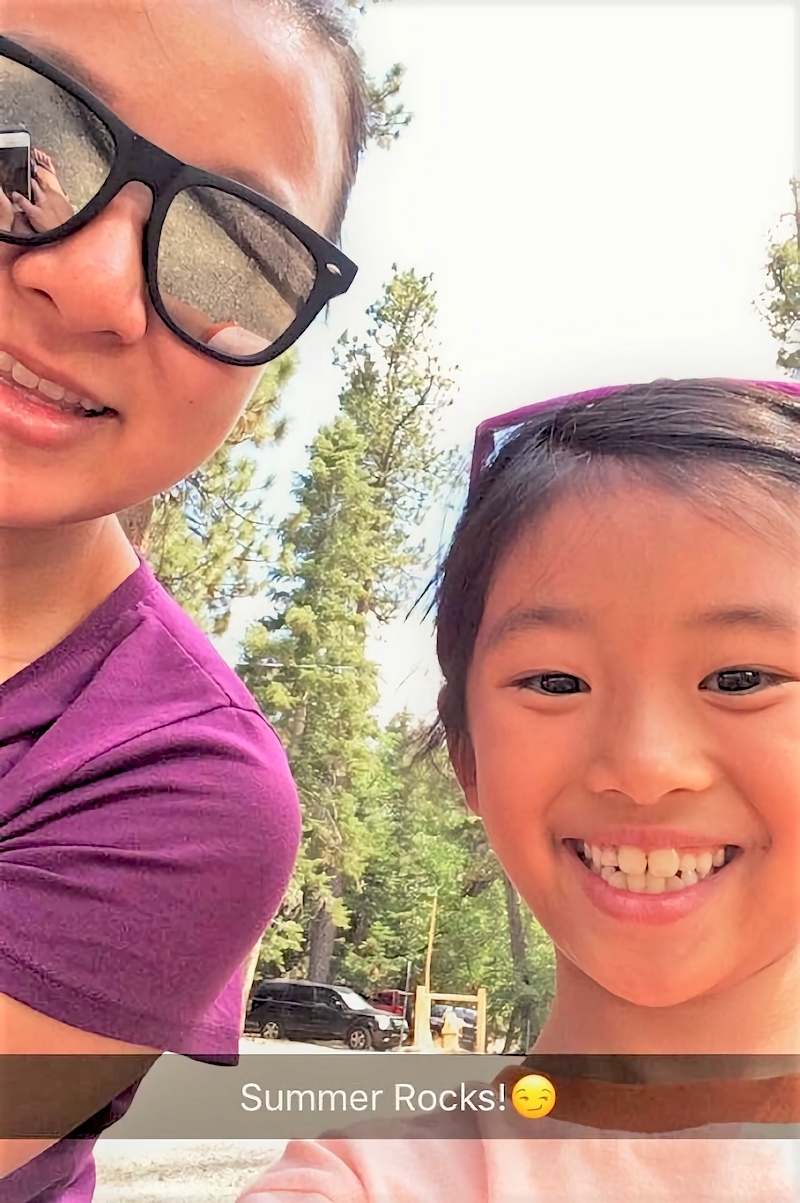
Choosing the filters and writing the captions are her favorite part
Summer occupations are awesome! It’s a chance to do more of what I love and try something new, too. With only one month left to go, I guess I’ll have to make the most of it.
⋯
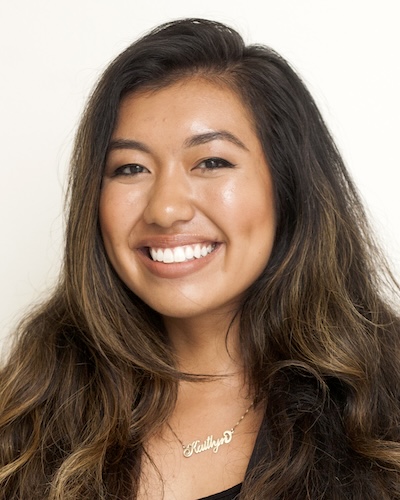
So Nice, I Graduated Twice ⟩
May 11, 2018, by Kaitlyn
Life Hacks What are OS/OT?
Channeling my inner Elle Woods, I first off want to squeal and tell my fellow class of 2018, “We did it!!!”
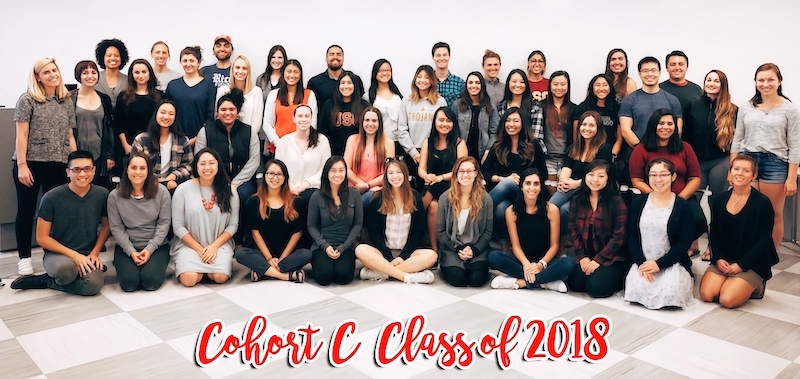
Class of 2018: Cohort C
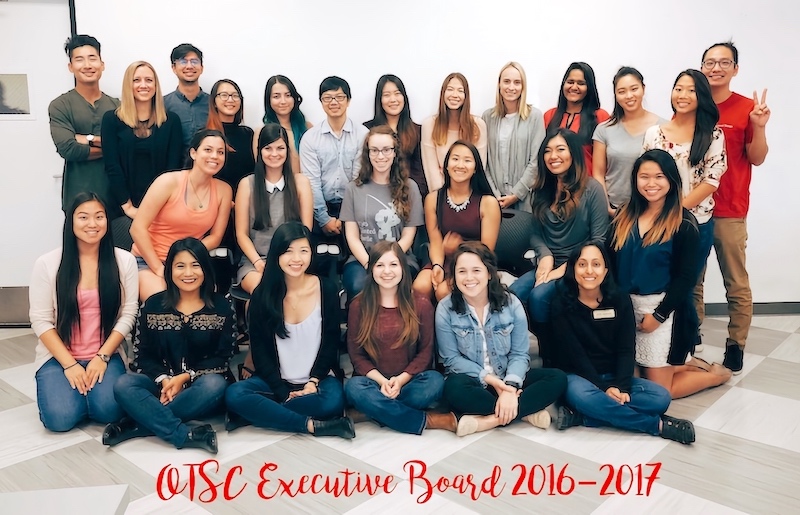
My first year on OTSC Executive Board
These past two years have been such a whirlwind, and I’ve had so many highlights that I know I’ll remember for a long time. I’ve stood in front of and presented to the largest crowds I’ve ever spoken to (upwards of 200+ individuals at a time), attended 5 conferences under scholarship across numerous cities and states, went on a Eurotrip with some of my best friends in the program, lived across the Pacific Ocean for three months (the longest I’ve ever been away from home, my friends, and my family), and learned about what it means to be the best occupational therapist I can be. Interspersed in these bigger events, life bestowed upon me lessons about myself, people, and life in general. I’ve learned and grown so much not only as an aspiring OT, but also as a person.
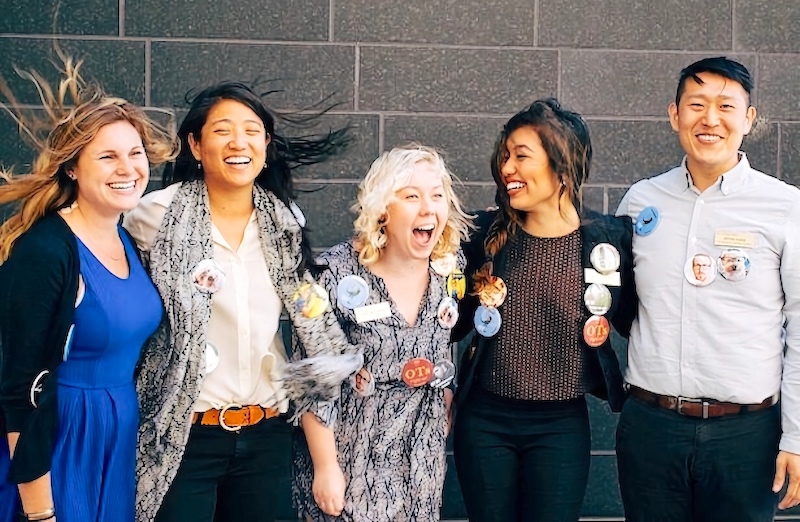
The Student Ambassador Team
Looking back on my experience in graduate school, these are a few things I would tell (and remind) myself. If you’re thinking about going to OT school as well, it may be helpful for you too:
Relax and do your best. You will be fine. | Work hard and do your best obviously, but don’t stress out too much about it. That 1 point you got off a test or assignment will not matter 20 years from now.
The power of influence (both good and bad) | You will meet so many people who you both will inspire and be inspired by. For the people you are inspired by, choose wisely. For the people you inspire, make sure you not only say what you mean, but live it out too. People are always watching, and what you do trumps what you say every time.
Remember your core values and live accordingly. | You will make a core values checklist during your first semester in the program. Look at it often. Are you living in a fashion that is congruent with what you believe?
Get to know the people around you and create meaningful relationships with them. | Again, you will meet so many different people. Get to know your peers, colleagues, friends, mentors, clinical instructors, and so on, on a deeper and more meaningful level. This life is about creating meaningful relationships.
Walk through doors that open up for you and take opportunities that fall into your lap. | Trust me, it will happen and it might even be a little scary. Everything happens for a reason!
Always remember the big picture. | You are in school because you want to positively change people’s lives and help them live life to its fullest. This is always the goal.
Remember to take care of yourself, have fun, and live your best life! | True: school is going to take up a huge chunk of your life. Also true: remember to live YOUR life too.
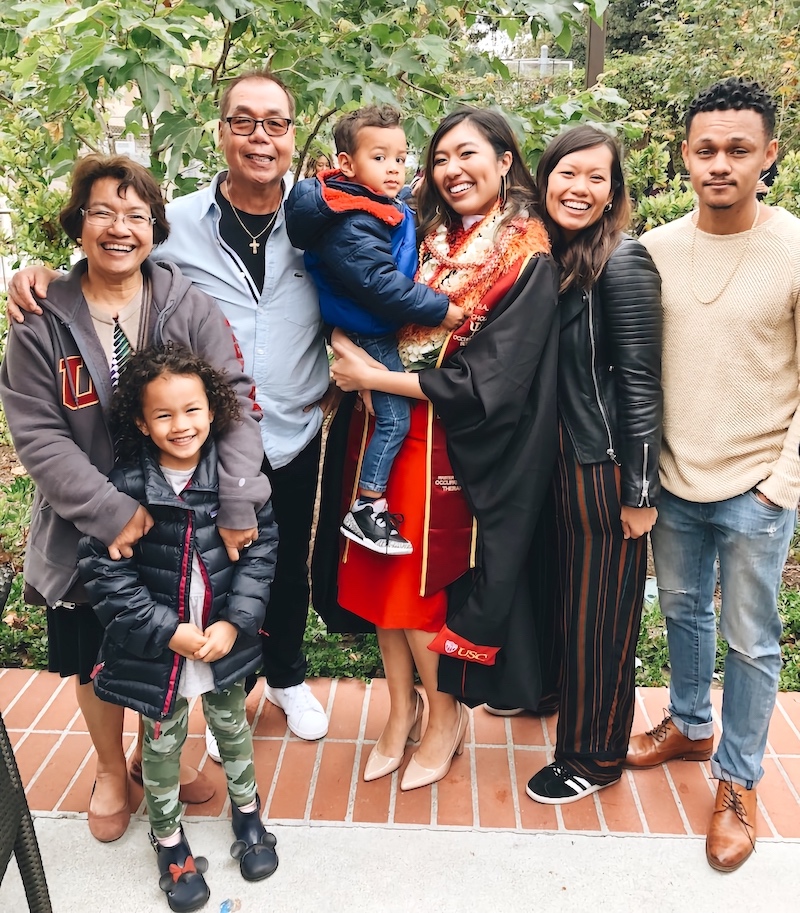
My amazing and incredibly supportive family!
I recognize there is absolutely no way I could have gone through graduate school alone. I am so thankful for Kimberly Kho and the Admissions team for providing guidance and support professionally and personally, my amazing Student Ambassador team (Ali, Erika, Caroline, Linah, and Bryan) for being the best group of people I could’ve ever asked to work with and for making what we do that much more fun and rewarding, the OTAC Student Delegate council for connecting me with OT throughout the entire state of California, OTSC Executive Board for being such an inspiring group of leaders, crazy Cohort C for being the most fun classmates to go through the program with, the Division’s faculty for always going above and beyond what is expected inside and outside of the classroom, and of course, my incredible and loving family and friends for helping me up through the lowest days and for walking alongside me during the happiest ones.
Thank you again USC Chan Division of Occupational Science and Occupational Therapy. What a journey it’s been, and I can’t wait to see where life takes me next.
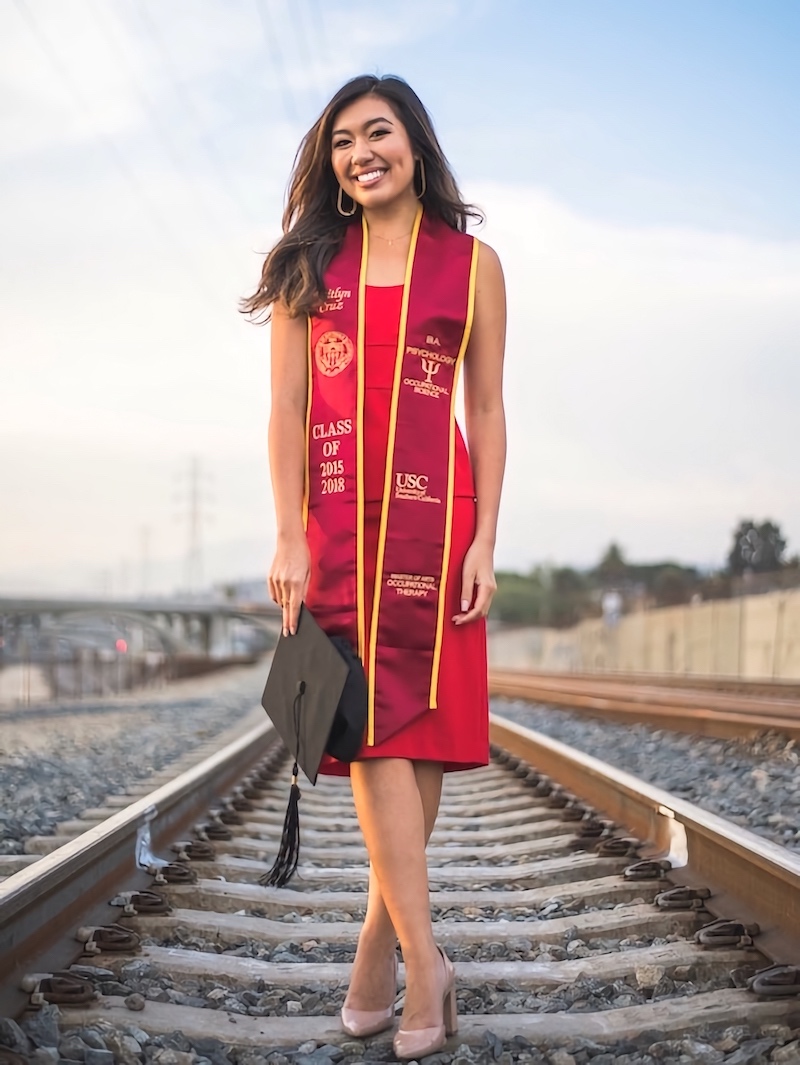
⋯





